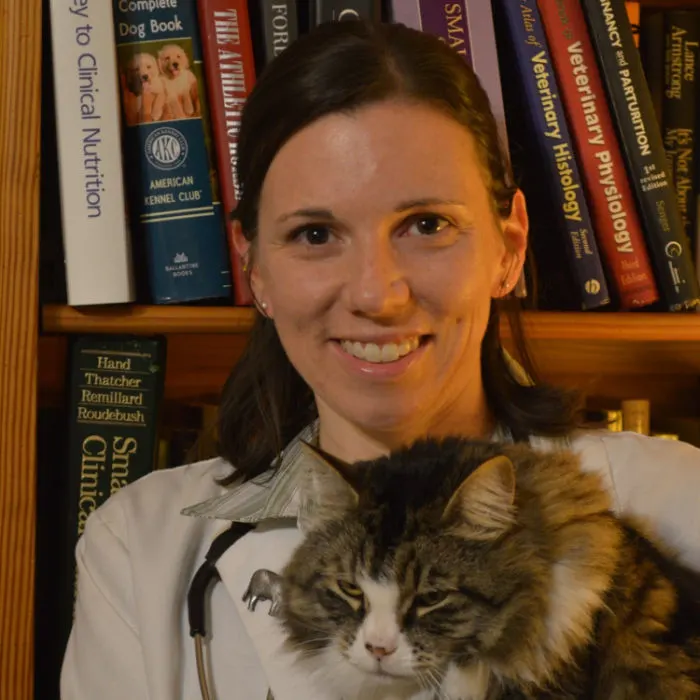As a rabbit owner, you’ll always want the best for your furry friend, and one way to show your love is by treating them to new foods. However, expanding your rabbit’s diet must be done with caution to preserve their delicate tums. This leads us to the question: Can rabbits eat raw potato?
This comprehensive guide covers everything you need to know about the mighty potato, from cooked to sweet potatoes, the benefits, and possible risks.
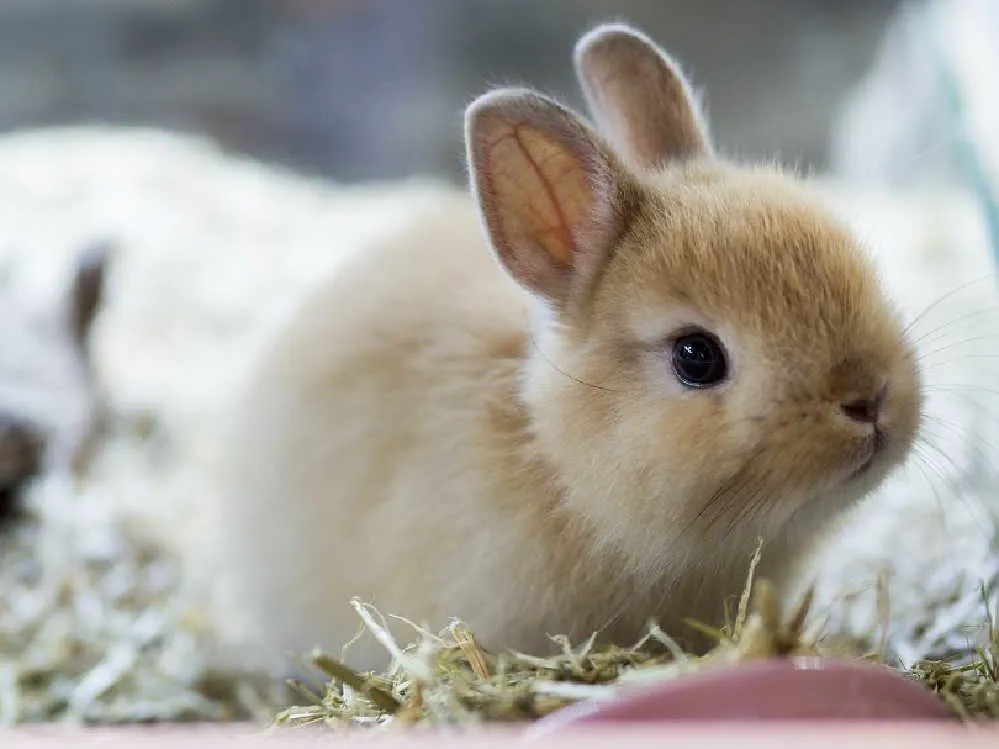
While sniffing around for new bunny treats and snacks, check out if rabbits can have squash.
Should pet rabbits eat raw potatoes?
The potato is a starchy root vegetable that features in most households thanks to its nutritional benefits and, let’s face it, ability to fill us up so quickly. Potatoes are also affordable, one of the most readily available staple food items on the planet.
So, feeding this starchy food to your fuzzball should be a good idea, right? Not quite. While bunnies can technically eat raw potatoes (as they won’t poison them), feeding them to your rabbit is not advisable, even in small quantities.
This vegetable is not ideal for bun-buns as it is high in carbohydrates and starch, which causes digestive issues in rabbits. Even wild rabbits don’t eat starch-dense -dense foods like potatoes, which should tell you much about what to feed your domestic rabbit.
The only reason why wild rabbits would eat potatoes is when they are starving and have limited feeding options. However, they still like the taste of potatoes, so you can give your pet bunny raw potatoes as an occasional treat. But it’s still better to opt for a healthier fruity treat.
There’s more to the potato that needs to be examined. Let’s have a look.
Note: An excessive intake of potatoes can lead to numerous health issues in your rabbit, which is covered later on.
Potato peels
Things do not get better regarding potato peelings. These are just as bad for your rabbit’s digestive system as the white, fleshy bits. This is due to the high amount of starch also present in the peels.
If you are going to give your bunny potato skin as a treat, be sure to rinse it properly to remove dirt and all traces of pesticides. Cut them up into small chunks and feed them the same amount you would the white fleshy part.
Potato leaves
This one is a huge NO. Potato leaves, stems, vines, and flowers are poisonous to both you and your bunny. You should never feed these parts to your rabbit (or any other pets) in any amount, as it contains a toxic chemical called solanine.
This toxic compound is a glycoalkaloid poison found in plant species of the nightshade family, including tomatoes, eggplants, and potatoes.
Read Next: Can rabbits eat strawberry tops?
Potato chips
While humans can’t resist a crisp and salty potato chip, they are unsuitable for furry family members. It’s best not to offer these snacks to your rabbit as it is not safe or healthy for them. Doing so can lead to serious digestive and health problems such as harmful weight gain.
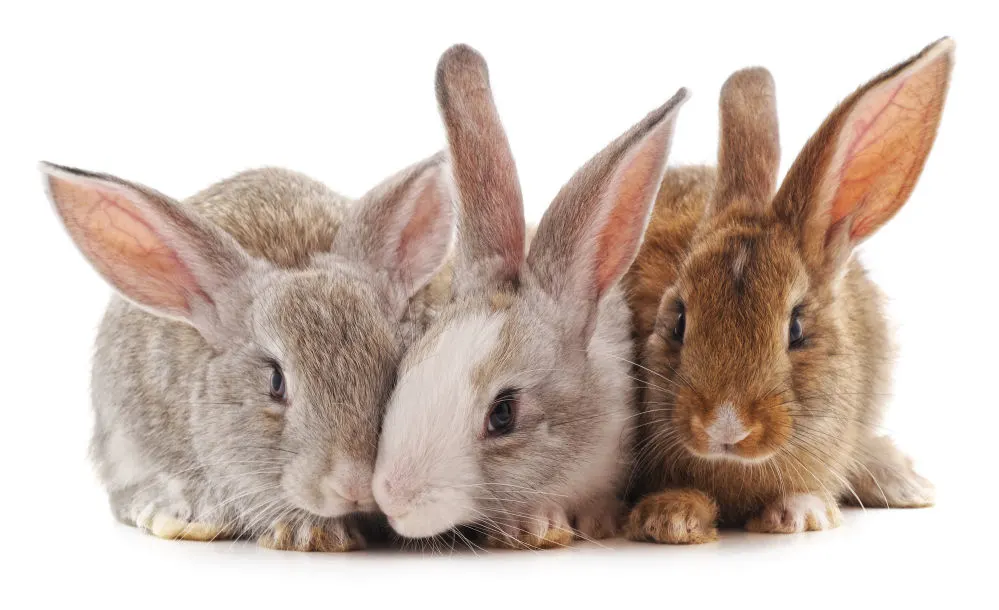
Green potatoes
Like the vines and stems, never feed your precious bunny green potatoes. A green potato contains the same glycoalkaloid poison, solanine, that is highly dangerous for rabbits to consume. Eating green potatoes, vines, stems, or leaves can lead to digestive upset, nerve damage, and in extreme cases, death.
Contact your vet immediately if your rabbit has eaten green potato or other poisonous parts of the plant.
Raw potatoes vs. cooked potatoes
Cooked potatoes contain less starch than raw potatoes. While blanching in boiling water, the tiny starch granules in potatoes absorb the hot water, swell then bursts, transferring it to the water. In this case, shouldn’t cooked potatoes be healthier for your adorable bun-bun?
Again, not quite. Foods with high starch content and too much carbohydrates are no good for your bun’s sensitive digestive systems — whether cooked or uncooked. Eating cooked potato, your rabbit will develop the same adverse reactions, including gastrointestinal stasis, constipation, and diarrhea.
Sweet potatoes vs. regular potatoes
Many people believe that sweet potatoes are just the sweeter version of a potato. While they are both root veggies with similar characteristics, they’re distantly related. The potato forms part of the nightshade family, and the sweet potato belongs to the morning glory family.
That said, many associate these vegetables with one another, so it makes sense to rope the sweet potato into this discussion. It’s generally believed that sweet potatoes are healthier than white potatoes, being lower on the glycemic index and providing more nutritional value.
The bottom line is adult rabbits can eat sweet potatoes as they are non-toxic to your furry friend. But, as with most root veggies, you’ll want to provide only a small amount. This is because sweet potatoes contain lots of starch and too much sugar to be an ideal healthy food option for rabbits.
Surprisingly, sweet potato leaves are safe for rabbits to consume. Again, as with sweet potato flesh, ensure you only give them small pieces of leaves and vines occasionally.
Can baby rabbits have raw potatoes?
A baby rabbit’s gut is even more sensitive and won’t do well with large amounts of starch and carbs. Feeding your tiny bun root veggies will cause them to develop digestive health issues and other problems. It’s better to introduce high-fiber foods such as fresh hay and leafy greens when kits start weaning off their mother’s milk.
Related Read: When do baby bunnies open their eyes?
Benefits of feeding your rabbit raw potatoes
Potatoes do not offer any essential nutrients to a rabbit’s health. Potatoes play no part in a balanced diet for bunnies but can be seen as a treat that your rabbit will enjoy and nothing more. Rabbits just aren’t designed to process such thick starch content.
The potato peels, however, have a lot of fiber (about double the fleshy part) and essential vitamins like potassium and Vitamin C. In this case, your bunny would benefit from eating the peels on a rare occasion.
Read Next: Can rabbits have grapes?
Risks of feeding your rabbit raw potatoes
In the case of raw potatoes, the risks greatly outweigh the benefits. Here are some of the potential risks of feeding your rabbit potatoes.
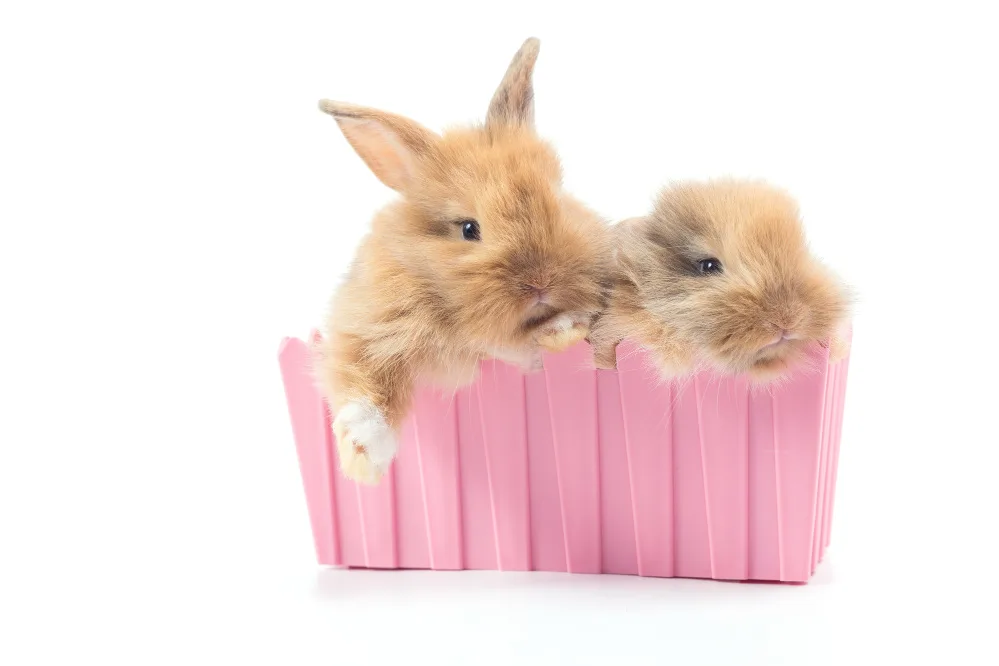
Digestive problems
Too much starch upsets the balance of your bun’s gut health, usually aided by a high-fiber diet. When this occurs, your rabbit can develop gastrointestinal problems, such as GI stasis. This is a deadly condition (if left untreated) that slows down a rabbit’s digestive system leading to bloating, constipation, and gas.
Signs of GI stasis in rabbits include eating less or not eating at all and passing smaller, drier fecal pellets. Your rabbit may pass soft stools before it shrinks and dries out.
Related Read: What does rabbit poop look like?
Weight gain or obesity
The high levels of starch, carbs, and sugar in raw potatoes can cause unhealthy weight gain and, eventually, obesity in rabbits. Obesity is a common problem in bunnies that could lead to numerous adverse effects, including heart and fatty liver disease.
An overweight bunny will have difficulty breathing and appear weak and poorly groomed as it’s difficult to reach everywhere.
Diarrhea
Diarrhea is a symptom of gastrointestinal problems caused by an incorrect diet high in sugars, carbs and low in dietary fiber. Too much potato can cause rabbit diarrhea, which you’ll notice through runny, sticky, and dark stool. Getting your rabbit to the vet should be your first priority if you see this type of stool.
Constipation
Constipation is yet another health defect caused by the excess consumption of potatoes. Signs of constipation include lethargy, dry or reduced stool, hiding, and dehydration. While it’s recommended to visit your vet as soon as possible, you can help your rabbit by providing plenty of fresh water and hay.
You can also encourage your rabbit to be more active and give them small doses of olive oil to help alleviate mild constipation.
Tips for feeding raw potato to your rabbit
- Rinse your potatoes to remove excess starch.
- Don’t feed your rabbit more than one teaspoon (5.69 grams) of potato per two pounds (0.9 kg) of your adult rabbit’s weight daily.
- Never feed your bunny potato plant, stems, and vines.
- Avoid discarding potato skins where your rabbit can access them.
Excellent healthy alternatives to raw potato
By now, you know raw (or even cooked) potato tubers are not a good choice for your precious bun-bun. Luckily there are plenty of alternatives for your rabbit to eat that’ll help them maintain a healthy diet.
These include various fresh vegetables and leafy greens such as the ones below:
- High-quality hay and grass
- Collard greens
- Carrots
- Romaine lettuce
- Dandelion greens
- Kale and spinach
- Broccoli stems and leaves
- Celery
- Watercress
- Basil
- Bok choy
- Mustard greens
- Parsley
Can rabbits have raw potatoes? Wrapped up
With all this information, will you still feed your bunny raw potatoes? Sure, it could be a tasty little treat for your fur baby on a special occasion. The general rule of thumb is to stick with healthier alternatives offering more essential nutrients for your rabbit.
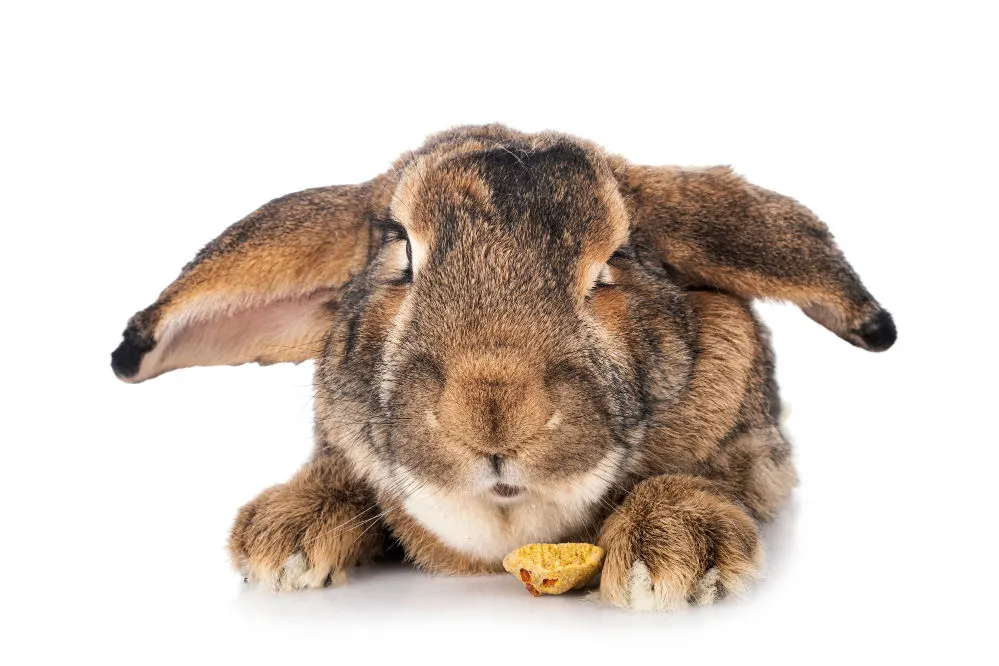
Instead of spending money on potatoes, it’s better to invest in fresh foods like dark, leafy greens and veggies with high fiber content.
Next Up: Can rabbits eat mango?
Steph Dyson is a travel journalist by trade but a lover of all small pets. She’s been a pet mum to everything from gerbils to guinea pigs, rabbits to hamsters, and fish to dogs of all shapes and sizes. She wants to share her years of experience with small pets and make Small Pet Guides the go-to website for pet owners seeking information and care advice.

